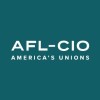
The Urban Child Institute
The Urban Child Institute is a non-profit organization dedicated to the well-being and health of children from conception to three years old in Memphis and Shelby County. Organizationally, we are a data-driven, result-oriented coalition of community researchers, strategists, and practitioners who share a common vision of turning research into actionable knowledge.






